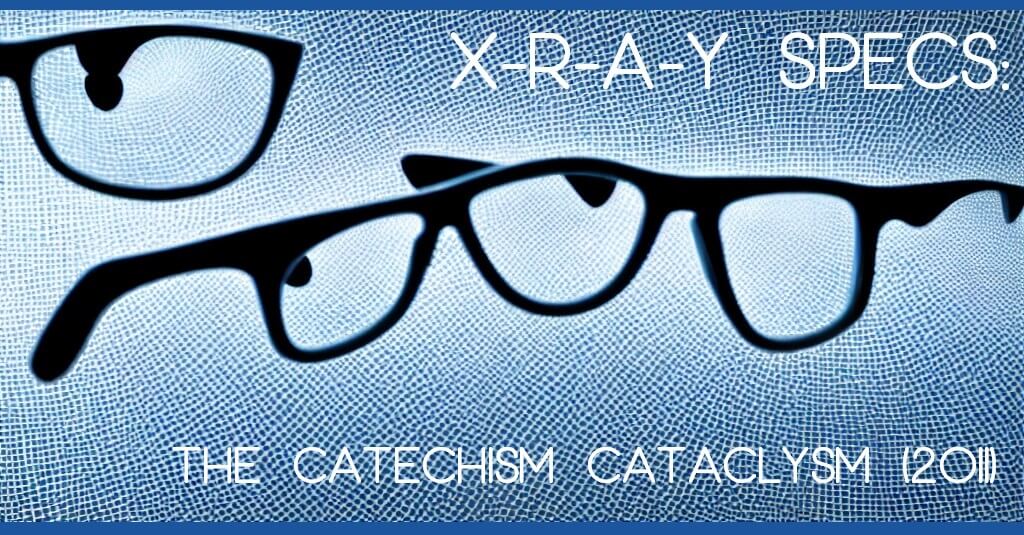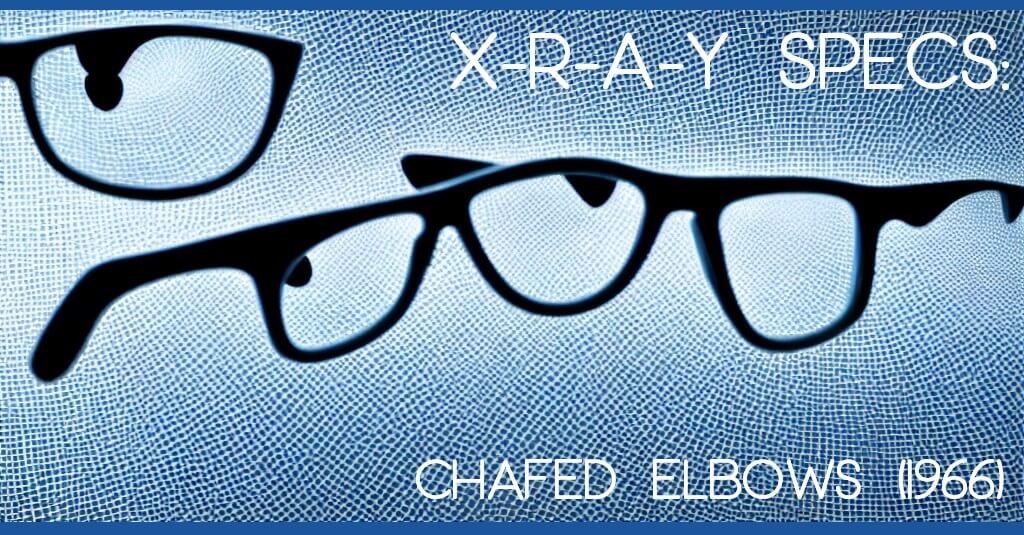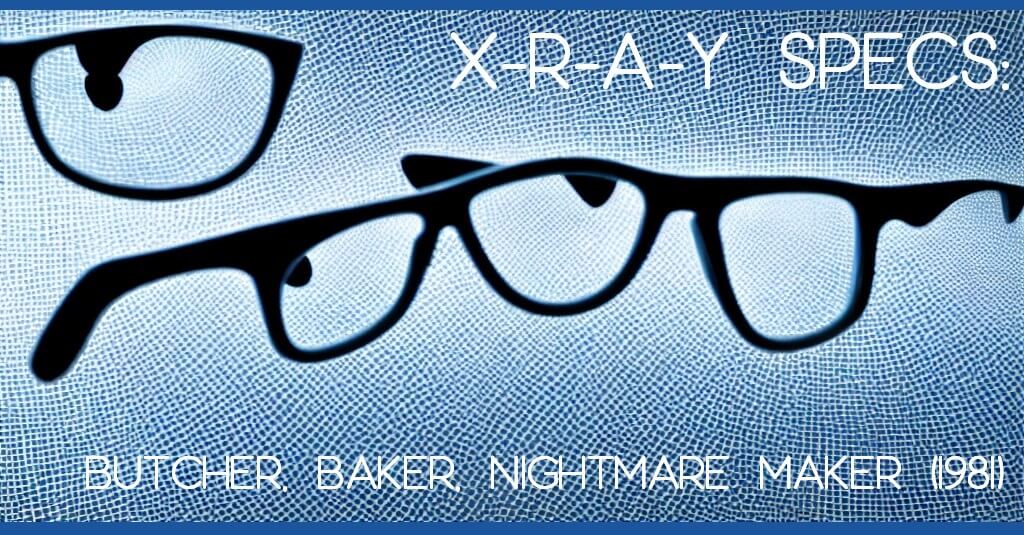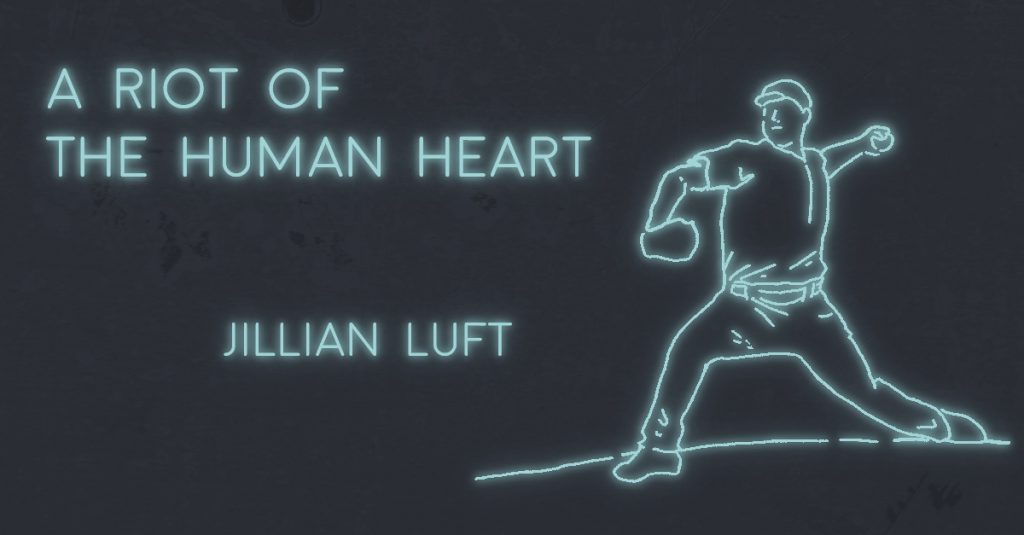
Jillian Luft
Jillian Luft is a Florida native currently residing in Brooklyn. Her writing has appeared in Hobart, Booth, Pigeon Pages, The Forge Literary Magazine, and other publications.


X-R-A-Y SPECS: A Strip of Uncut Wild Flowers (1980)

X-R-A-Y SPECS: Toys (1992)

X-R-A-Y SPECS: The Catechism Cataclysm (2011)

XRAY SPECS: Chafed Elbows (1966)

XRAY SPECS: Butcher, Baker, Nightmare Maker

X-R-A-Y SPECS: All-American Murder

X-R-A-Y SPECS: BLOODY NOSE, EMPTY POCKETS

X-R-A-Y SPECS: ZARDOZ (1974)

A RIOT OF THE HUMAN HEART by Jillian Luft
Boston is burning itself over a baseball game. Outside of Fenway, the local evening news zooms in on a few torched sedans. Undercarriages in flames like hibachi grills. White boy ruddy faces rejoicing. Game 4 of the 2003 ACLS. A Red Sox victory.
I care about baseball because I love you. I want to wake you up to celebrate Johnny Damon and Pedro Martinez and all those other shaggy-haired rascals hellbent on breaking the curse. Once you view the game highlights, I want you to bang me against the TV, so my bare ass kisses static. I want you to tell me it’s all okay, that it’s only the oysters like you said—no, slurred—before you passed out with puke on your tongue.
Boston ties with the Yankees for the series. So, they revel and pelt the pavements with their empties. Some brawl in bars while others lay waste to their beloved hometown with spray paint and gasoline and alcohol-impaired decision-making. At first, I don't understand why their response to winning is as if they’d lost. Then I think about all the times I lucked out when I thought myself doomed. Hope, victory, delusion—whatever you want to call it— can feel like you’ve managed to cage death. Like you have to edge closer and reach through those bars to truly know what you’re up against. Like you can only make sense of your good fortune by testing it.
I watch you in your clammy, fucked-up sleep. You’ve been this way for hours. Still and corpse-like. You don’t stir, but you sweat. God, do you sweat. You’ve got that after-vomit sheen, skin the color of a dead tooth. You’re still wearing your good clothes but we’re not going anywhere.
In my new lacy underthings, I slump against the bed frame. I glimpse my wan face in the mirror and behold a pouty, bare-breasted child. I contemplate the ways my skin folds when I cry, the way my eyes retreat into my babyfat cheeks but leave wet traces. The way I look when I’m alone: pathetic but honest.
The celebration-cum-riot continues. Drunken, gap-toothed bros too close to the camera. Mouths like clogged drains. I wonder if I could spy the mayhem outside our hotel window, but I’ve no idea where Fenway is. I’ve seen so little of this city since we arrived this morning. Just a raw bar kiosk in Quincy Market, the inside of a Victoria’s Secret, a basement Mexican restaurant in Faneuil Hall, and a shitload of Dunkin’ Donuts. If I didn’t know about Paul Revere and the cobblestones, I’d think there’s no rich history here. Except for sports, of course.
The truth is I don’t need history. I’m happy to be lulled—no, fooled— by the present, the way our bodies find ways to collide from moment to moment, the way your hands and mouth and dick quiet my fears, make me forget about everything else but us.
It feels like grief when you’re lost to me like this. I worry you’ll wake up and forget—no, remember—what we’ve done. You’ll see it differently and then you won’t see me at all.
You blame the oysters, but I ate them too. It’s not bad seafood and it’s more than the booze or the drugs—though they certainly play their part. It’s that you haven’t seen your boys in months now, that you are reminded of your youngest when we landed at Logan because it’s his namesake. It’s the foggy realization that even in these clandestine and anonymous spaces where no one knows our sordid origin story, the odds of this working out don’t change. Wherever we go, there we are—totally tragic and out of control. The havoc our passion creates is literally making you sick, but you’ll never admit it.
This trip is intended as an escape. A respite from the harsh demands of your wife’s lawyer, the real repercussions of our workplace romance, the tenuous nature of our cohabitation. Sober truths await us in Florida, bitter and anti-climactic like the Ecstasy comedown we recently shared at your best friend’s wedding.
I hoped for an evening of memorable romance, some sort of affirmation that the hardship, the wild impulses, the inevitable hurt, the inadvertent destruction, the sheer and total dysfunction of it all is worth it. I hoped, at the very least, you’d take me to Cheer’s.
But I refuse to wallow. This is our vacation, goddammit. We’re in Boston and we’re in love. I grab the stationery off the nightstand, uncap the pen with my teeth. I lay on my stomach like a homesick camper, my head resting at your feet. While I stare at your stubbly mask of a face, I pen you a love letter. You’re my destiny and I find a dozen eloquent—no, florid and insincere ways— to tell you so. I write about everything but tonight except to say that when you’re sleeping you look pure, except to say I know forever and it’s you.
Eventually you wake up and reach for me, chapped lips forming excuses. I silence you with my girlish grin, gift you the notepad with mute anticipation. When you read my words, you cry just enough to seem genuine. Your voice is sturdy and weighted with promises far too heavy to keep. You say I love you like it’s an instant replay. You chant my many pet names until I nearly forget who I am. This is the way I like it best: to be lost in your perception of me; to place faith in mutual fantasy; to root for us, the underdogs, whose love will win out if they continue to ignore the rest.
When we return to Florida, your wife finds my letter in your glove compartment. I thought you’d be more discreet, more appreciative of this private—no, performative—testimony. She rips it to shreds; makes you promise I’m gone. And you do but then you don’t. Until you do.
I realize now what I’ve lost, you say. You tell me I need to find another place to live, another person to love. And I wonder who’s really lost what when I whisper, okay, while clenching a throw pillow that probably once belonged to her. And that night, as I thrash and wail in our big white bed, lost in all that I’m losing, calling out to you on the couch, pleading for you to come and hold me, the back of you sighing my name with pity and indifference, I still think I can turn this around. I’ve done it before. Like that night in Boston. I can assure us that what we have is kismet, record-breaking chemistry, a riot of the human heart that can’t be contained. I refuse to let all the rapture—no, destruction—be for nothing.
Everything hinges on Game 7 of the ACLS: a trip to the World Series, the reversal of a curse, a city’s restored belief in themselves. Part of me—no, nearly all of me—thinks you’ll come back if the Red Sox pull this off. At Yankee Stadium, a tired yet determined Martinez remains on the mound long after he should. His manager checks in with him but decides not to pull him out. And when Wakefield closes in the 11th inning and Aaron Boone nails a home run, it’s not the result of some sinister voodoo. If the fans were honest with themselves, they’d admit it was the way the game was played.
